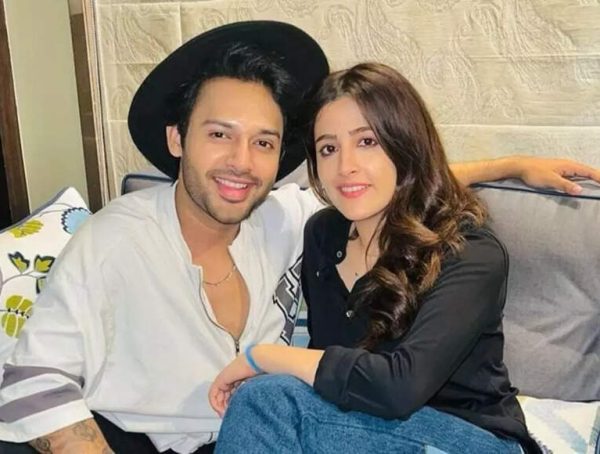There’s a kind of sigh that happens now when someone says, “I’ve re-downloaded Bumble.” Not the flirtatious kind. Not the hopeful kind. The sigh is flat, like reopening a tab you’ve closed ten times today. A fatigue so specific it doesn’t even feel like sadness anymore—just dehydration for your sense of romantic possibility.
I’m not single—but most of my closest friends are. So singleness has been a constant presence in my life, just experienced from the periphery. And over the past five years, I’ve heard two things more than anything else:
(1) “Modern dating is exhausting,” and
(2) “I’m opting out—I’d rather invest in my friendships.”
And indeed, a new study predicted 45% of women aged 25–44 will be single by 2030. Gottman (2016) also mentioned that men live longer when they’re married or have long-term partners; but women live longer if they have women friends. Women also find greater satisfaction with singleness than single men, another study finds.
We say we’re tired of dating. But maybe it’s not the dating itself. Maybe it’s the system we’re dating in. Modern dating sits at the crossroads of two opposing forces—fantasy we’re sold and function we’re stuck with—pulling us in opposite directions and creating constant tension. One is selling the dream—that romance is what we crave to rescue us from the chaos. A soft place to land. Something to cure our emptiness. A place to come home to at the end of a long, brutal day.
But while we’re sold the idea of romance, the reality of modern love doesn’t feel like “putting yourself out there.” It feels like updating our LinkedIn. Filing taxes. The fifth round of an unpaid internship. We’re no longer falling in love. We’re logging into it. Managing impressions. Assessing candidates. Hoping we don’t have to explain our last relationship or our Spotify top five one more time.
Modern love isn’t just hard—it’s work. Emotional labour. Transactional. Personal branding. And the worst part is that it’s labour with no guarantee.
Welcome to the romance economy. We’re still being sold to it—just now rebranded, aestheticised, algorithmically packaged.
We’re drowning in the cinematic fantasy of love. The bookstore glances in Notting Hill, the slow-burn longing of Call Me by Your Name, the letter-writing men of The Notebook. Romance that stops time. Love that feels like fate with a film score. The kind that finds you when you least expect it, interrupts your trauma with laughter, heals your wounds without asking, and knows your coffee order by heart.
We internalised that fantasy. Not just wanting love—but wanting to be loved in a way that deserves a soundtrack. And we clung to it. Especially now, when life feels mechanical and bleak, romance remains the last sacred unknown. That’s why proposal videos go viral. Why grand gestures still make us cry. They validate the myth we were raised on: that love should feel bigger than everything else. That we’re still worthy of magic.
And while we think that fantasy has died, it has scaled. What used to be two-hour epics are now fifteen-second TikToks with matching hoodies and whispered captions like “he’s not on social media but he’s everything.” The fantasy moved from Meg Ryan to your high school friend’s engagement shoot. From movie screens to Instagram grids. From rare spectacle to constant visibility.
Romance is no longer an unreachable myth—it’s ambient and it’s everywhere. It’s soft, curated, and casual—but ever-present. Which makes the ache deeper. Because now, if you haven’t found it, it’s not just unfortunate. It can feel like failure.
That’s the machine behind dating fatigue: the romance economy. A system where love isn’t sacred—it’s scalable. It’s branded, aestheticised, algorithmically packaged. Romance is no longer just a feeling. It’s a funnel. A marketing asset. A content strategy. We’re not just sold love—we’re sold the lifestyle of being loved. The candles, the coffee dates, the forehead kisses, the neutral-toned apartments. And if your days don’t look like that, it feels… not only lonely, but also inadequate?
The commodification of love: We’re not dating anymore. We’re self-marketing.
Today, it’s not just romance that’s being monetised. Love, too, is commodified. While romance sells us an unpredictable, messy, slow-burning experience, the reality is quite the opposite: love is a set of marketable traits and swipeable features.
This is the part no one wants to admit: we’re no longer just dating to meet someone. We’re dating to be chosen. We write a bio. We select five images that imply spontaneity, stability, a friend group, and ideally a dog. We play pretend: we text like a copywriter, banter like a comedian, disclose trauma just enough to appear emotionally intelligent, but not so much that we seem unhealed.
The system isn’t designed to help us find love. They’re designed to keep us searching. The app you think is a modern Cupid is really an endless slot machine. Every swipe is a pull of the lever. Every match, a dopamine hit. Every ghost, a reason to optimise. Every “hey :)” that leads to nothing is a quiet reminder that your value is measurable, and you’re currently underperforming.
Don’t get me wrong—dating apps aren’t failing us. They’re doing exactly what they were built to do. Just not for us. Because we’re not just the users—we’re the product. Love is commodified, and we pay for it with our time, our hope, our emotional labor. It’s free for us, but only because the real customers are investors. And the problem isn’t that the system doesn’t work. It’s that it works too well.
And what’s wild it’s how easily this culture follows us offline, internalised like it’s our inherent survival instinct. “Play it cool.” “Don’t come on too strong.” “Don’t look too available.” “Mirror their energy.” We’ve internalised the entire UX of dating as an emotional strategy. The vibe must be consistent. The attraction, mutual—but slightly asymmetrical, so no one loses power.
And while we’re so busy maintaining our aesthetics, we’re also busy assessing our dates like we’re comparing shoes at the store. So when you sit across someone now—at a bar, on a first date—it’s hard to just be. Because in the back of your mind, the funnel is already forming. You don’t meet someone to be curious anymore. You meet them to evaluate. It’s a job interview with cocktails. A performance review in cute shoes.
We’re no longer asking, “Do I like them?” We’re asking, “Are they better than the last one I met last night?” “Can I do better?” “With the pool of people I meet, what will I be missing out on if I really like this one right here?”
It’s a performance in an ongoing audition. A pitch you’re supposed to refine, test, and iterate until it “converts.” And suddenly, it feels a lot less like falling in love, and more like managing impressions in an A/B testing.
It’s a system that conditions us to believe that if we just optimise our inputs—enough effort, enough charm, enough emotional intelligence—then we’ll land a high-quality match. Love, like productivity, has become an outcome we’re supposed to earn. And if we don’t—well, clearly we didn’t work hard enough.
And the worst part is: it feels like our fault. We think we’re the ones doing dating wrong. That if we just had better photos. A better opener. A more secure attachment style, maybe love would land this time. Because when love is commodified, engagement is more profitable than satisfaction. And longing is easier to monetise than fulfillment.
And all of that comes down to one thing: while we overidealise romantic fantasies, the only way to survive in this wild modern dating game is to be transactional. We date like we work. And that corrupts us. It’s no wonder we break under the pressure of it.
We miss unbranded intimacy, not just being loved. We crave a pause, not just a person.
We say we’re tired of dating. But maybe what we’re tired of is optimising every part of our lives into a hustle. Maybe what we miss isn’t even love—but the kind of space where connection didn’t feel like a pitch. Where you were allowed to just… be.
That’s why so many of us are opting out. Choosing instead to pour into our friendships. To deepen our community ties. To build networks of care that aren’t built to perform—but to last.
It’s not that we’ve become unromantic. It’s that romance has been rendered unlivable in the conditions we’ve created. We’re burned out not from dating, but from trying to perform connection in systems that reward disconnection. Because let’s face it—in this modern dating world, people who can disconnect, who are detached, win. And so no wonder a lot of people have opted out of dating and instead choose friendships more.
What we crave isn’t just partnership—it’s reprieve. What we crave isn’t just someone. It’s space. Space to be messy, slow, unresolved, unknown. Space to feel instead of assess. To exist without optimising. To love, not as an achievement—but as an experience. Because maybe what we miss isn’t just intimacy. Maybe it’s the conditions that made intimacy possible.
We want presence. That soul-softening, laugh-in-the-kitchen, sit-in-silence kind of love that doesn’t need an outcome. We want to be witnessed—not filtered. Touched—not scanned. Met—not measured. And maybe… with love being commodified, we can only find it in that friend who texts us, “home?” when they know you were going home on your own at 2 a.m. Or that friend who’s caught in a disagreement with you and says, “I disagree with you, but I love you no less.”
We don’t want to be someone’s reward. We want to be someone’s rhythm. Just a life that’s held, shared, stumbled through. Together.
More from LIVE and Trending Now
RJ Mahvash Lavishes Praise On Yuzvendra Chahal Amid Dating Rumours, Calls Punjab Kings Player ‘Great, Most Caring Person’
Yuzvendra Chahal and RJ Mahvash have been rumoured to be dating shortly after the cricketer's divorce was finalised with …
Is being good with pets a green flag? Relationship expert shares how this may be the new love language
When you are on a dating app and swiping through profiles, have you come across one that …
Stebin Ben shuts down dating rumours with Nupur Sanon, says their bond is purely platonic: ‘Yes, I am single’ | Hindi Movie News
Singer Stebin Ben has officially addressed long-standing speculation about his relationship with Nupur Sanon, and fans hoping …
































